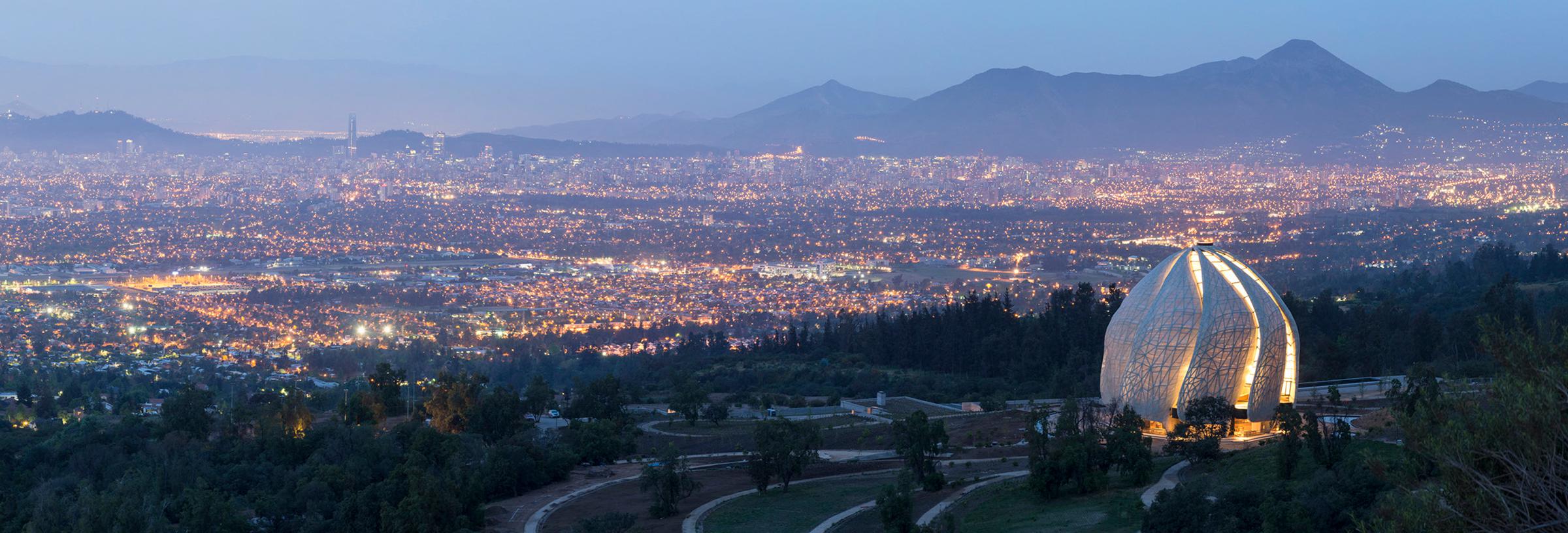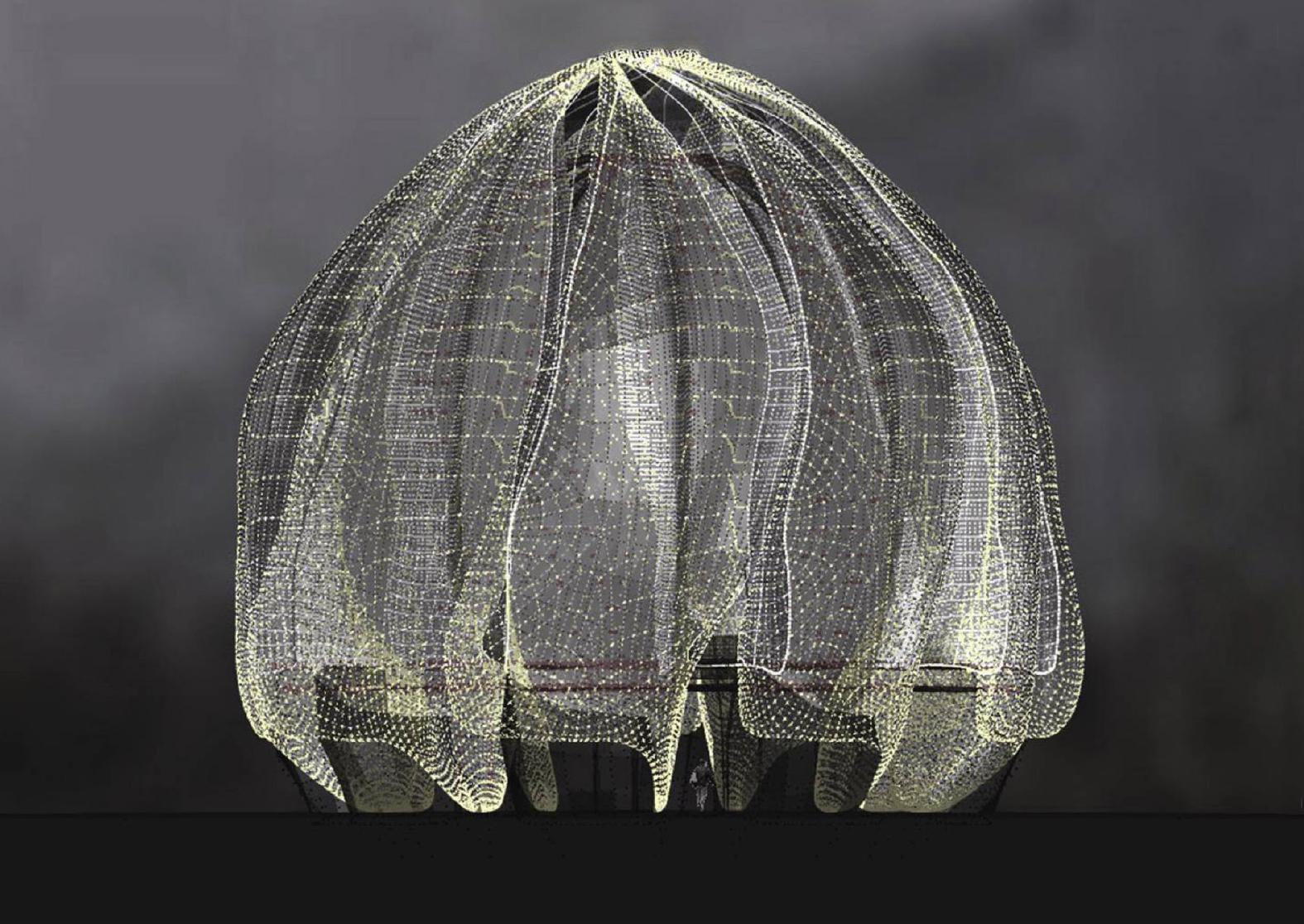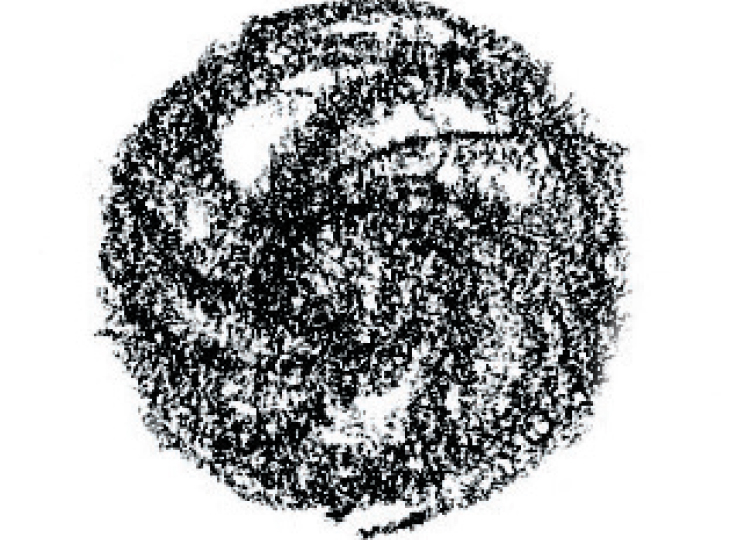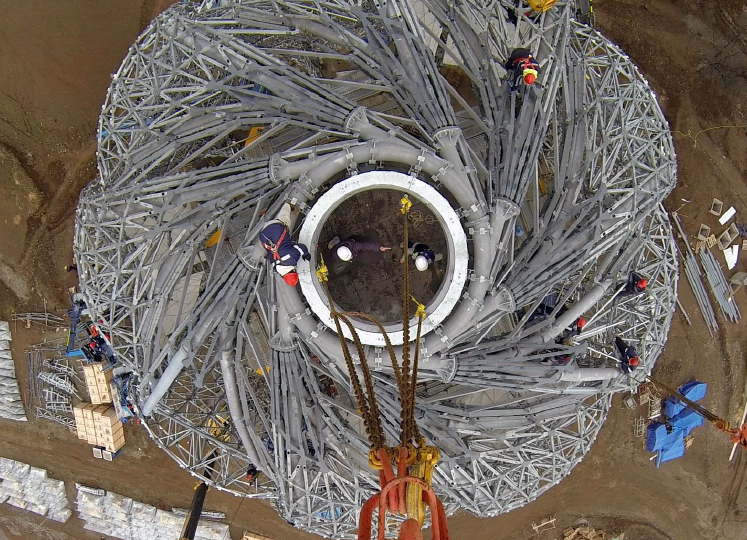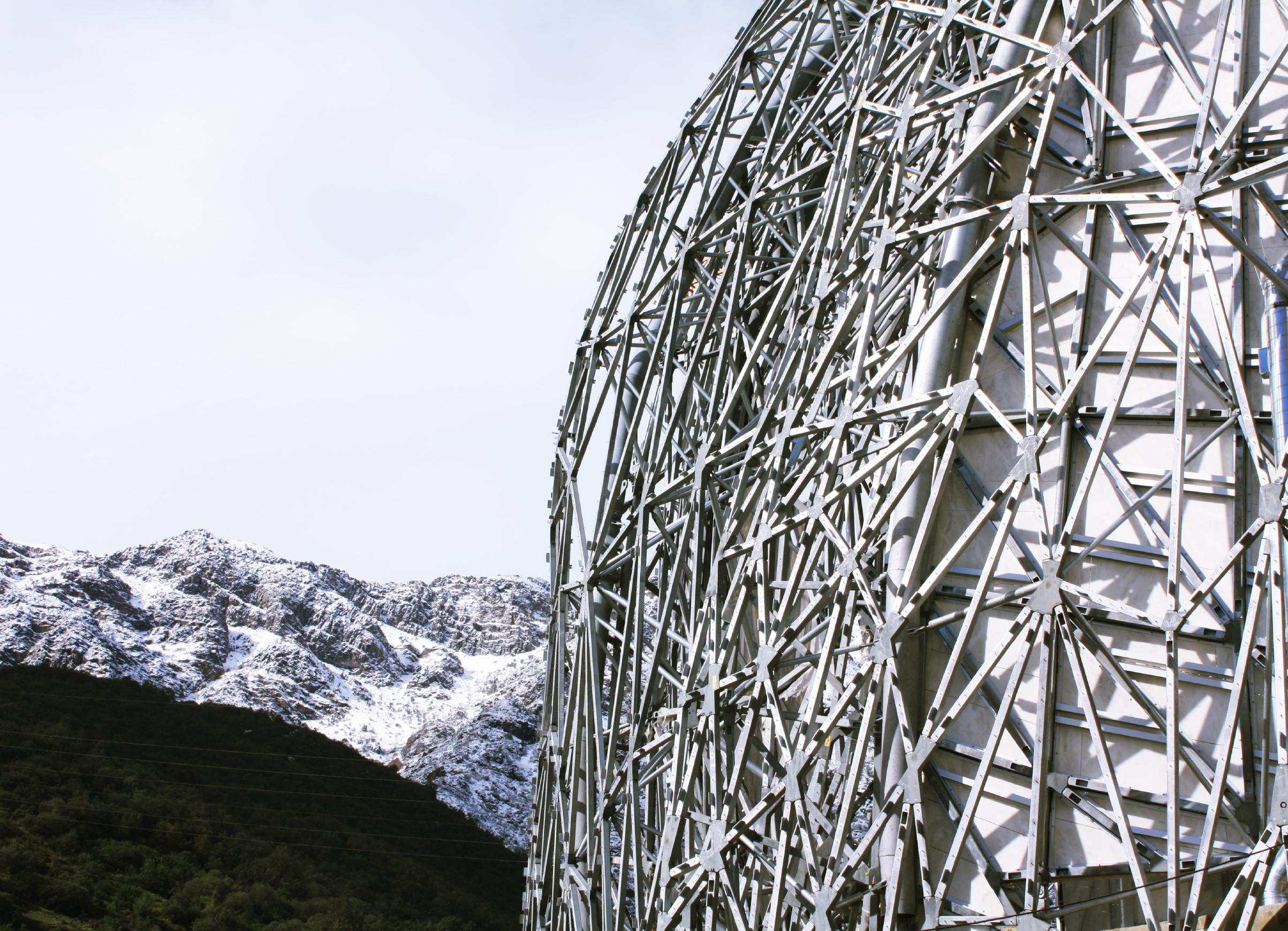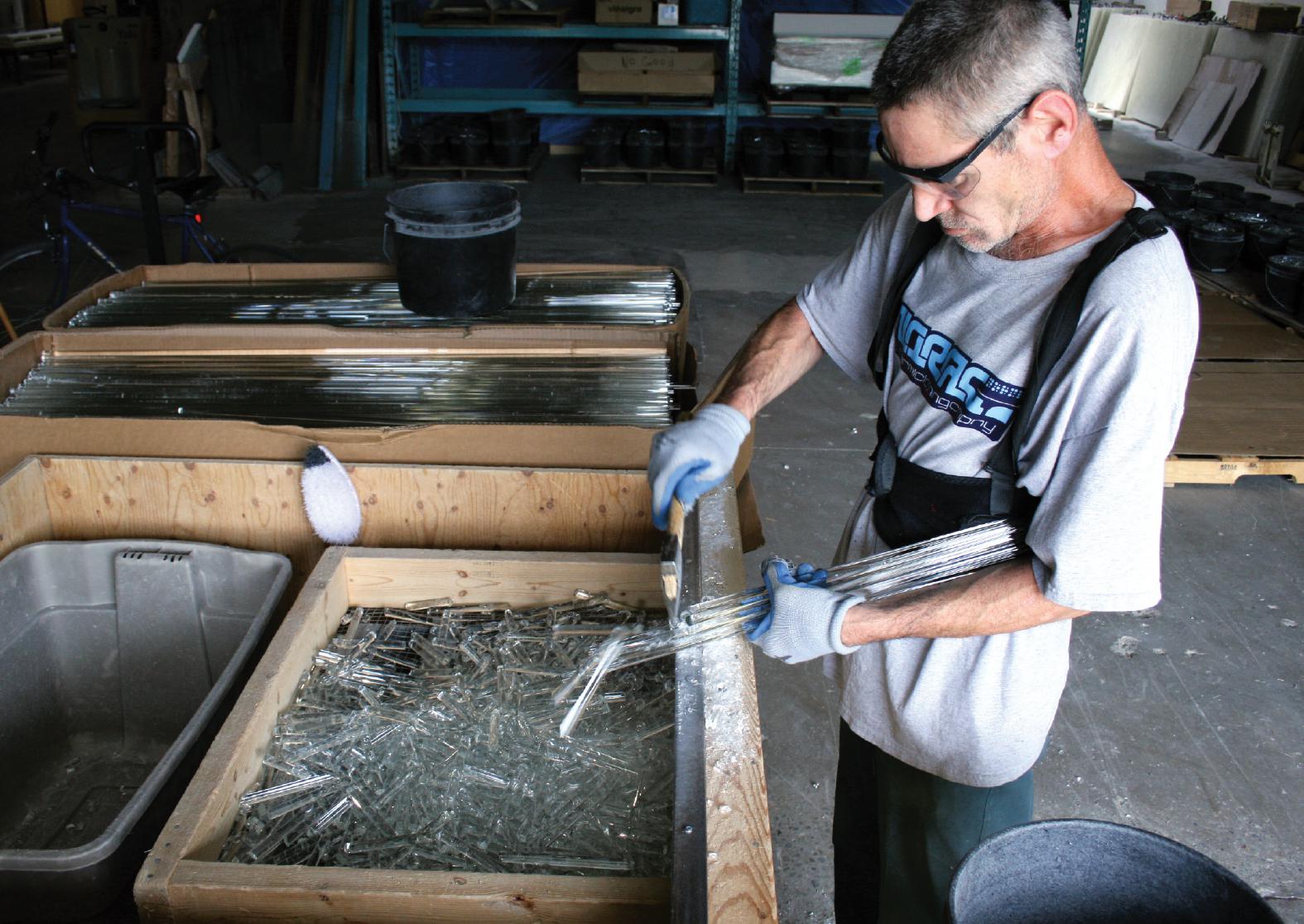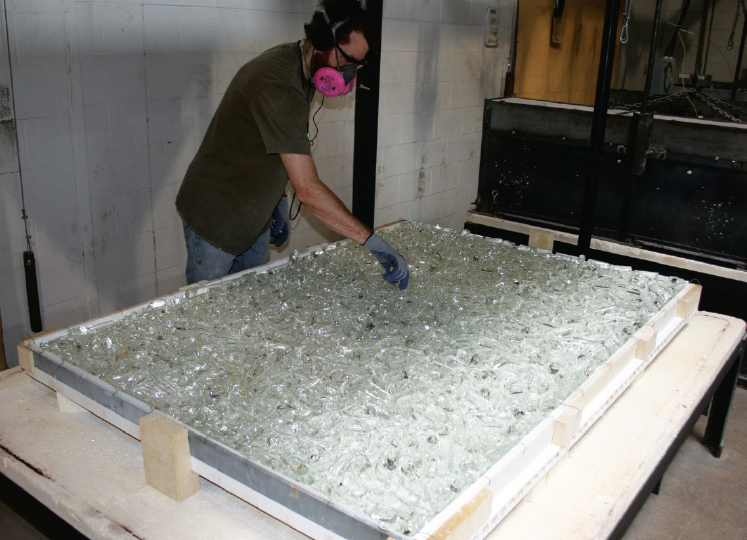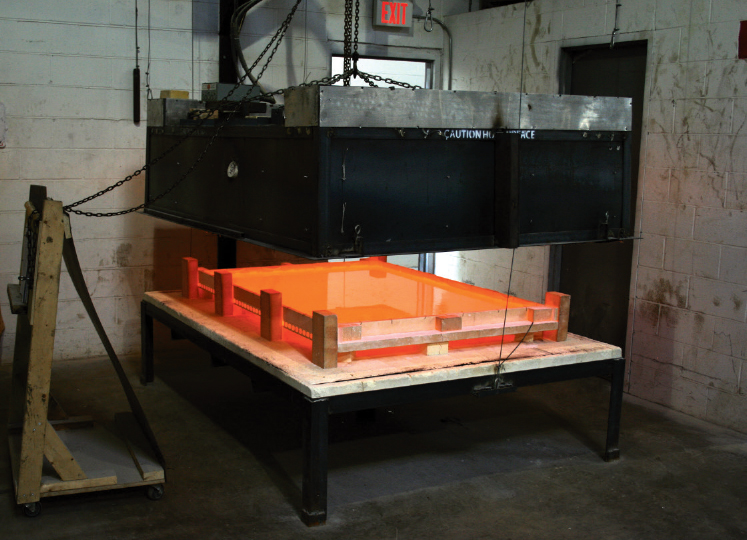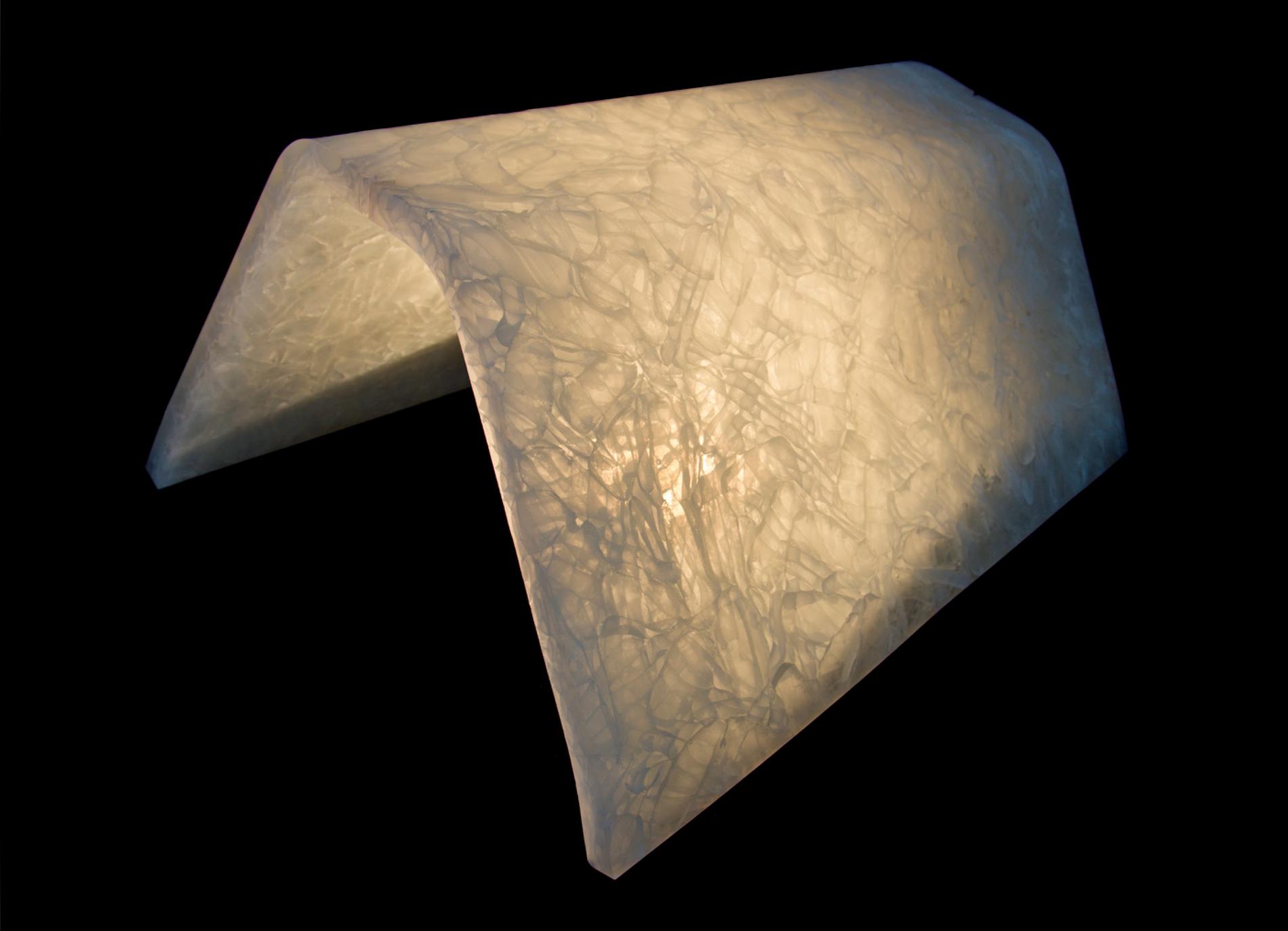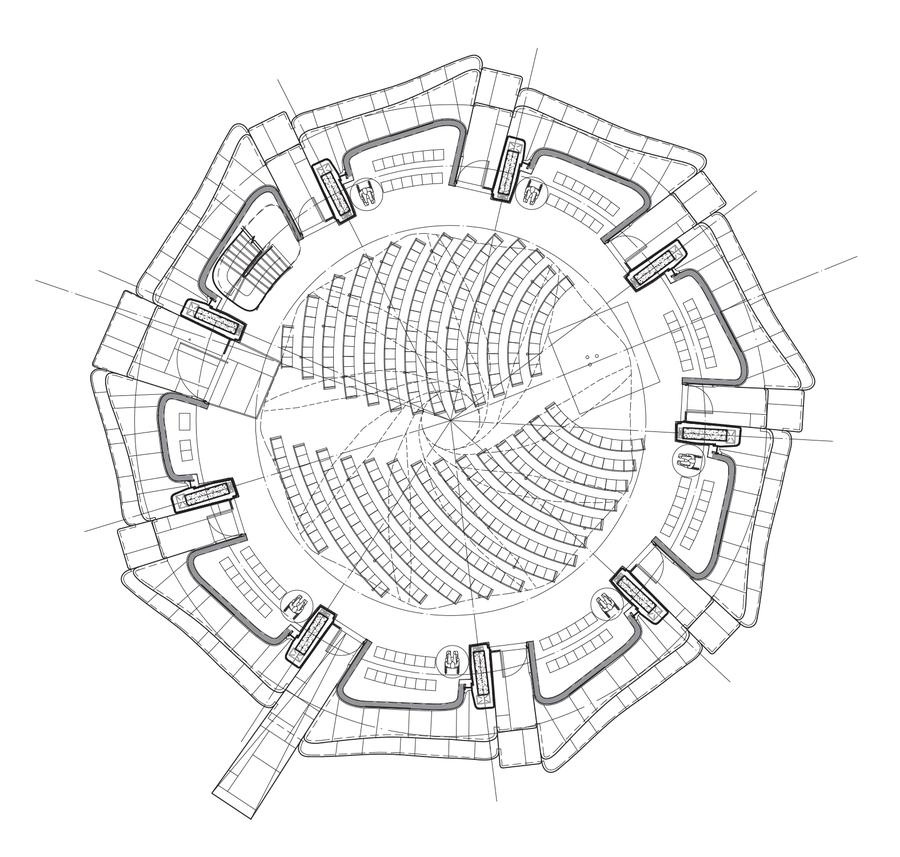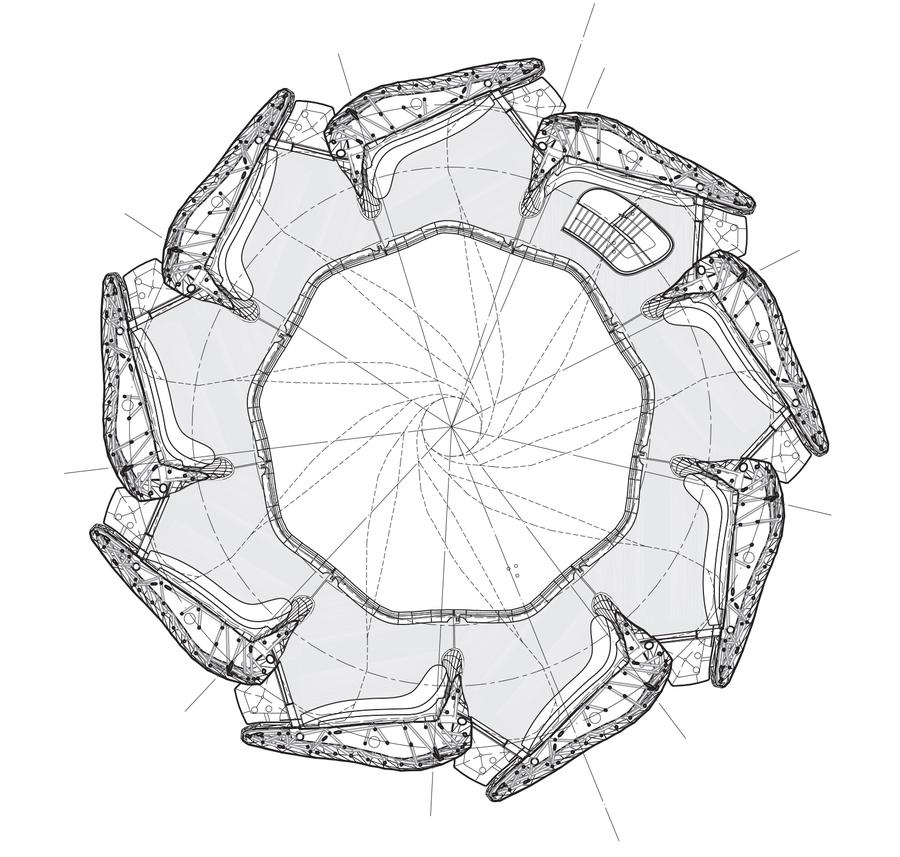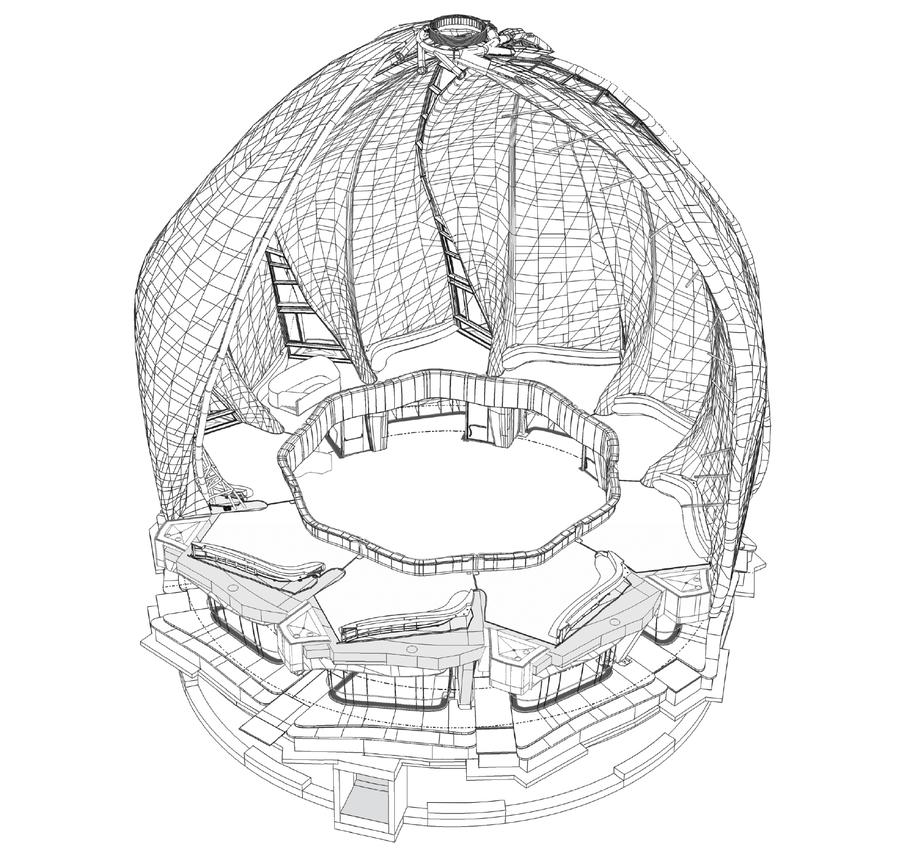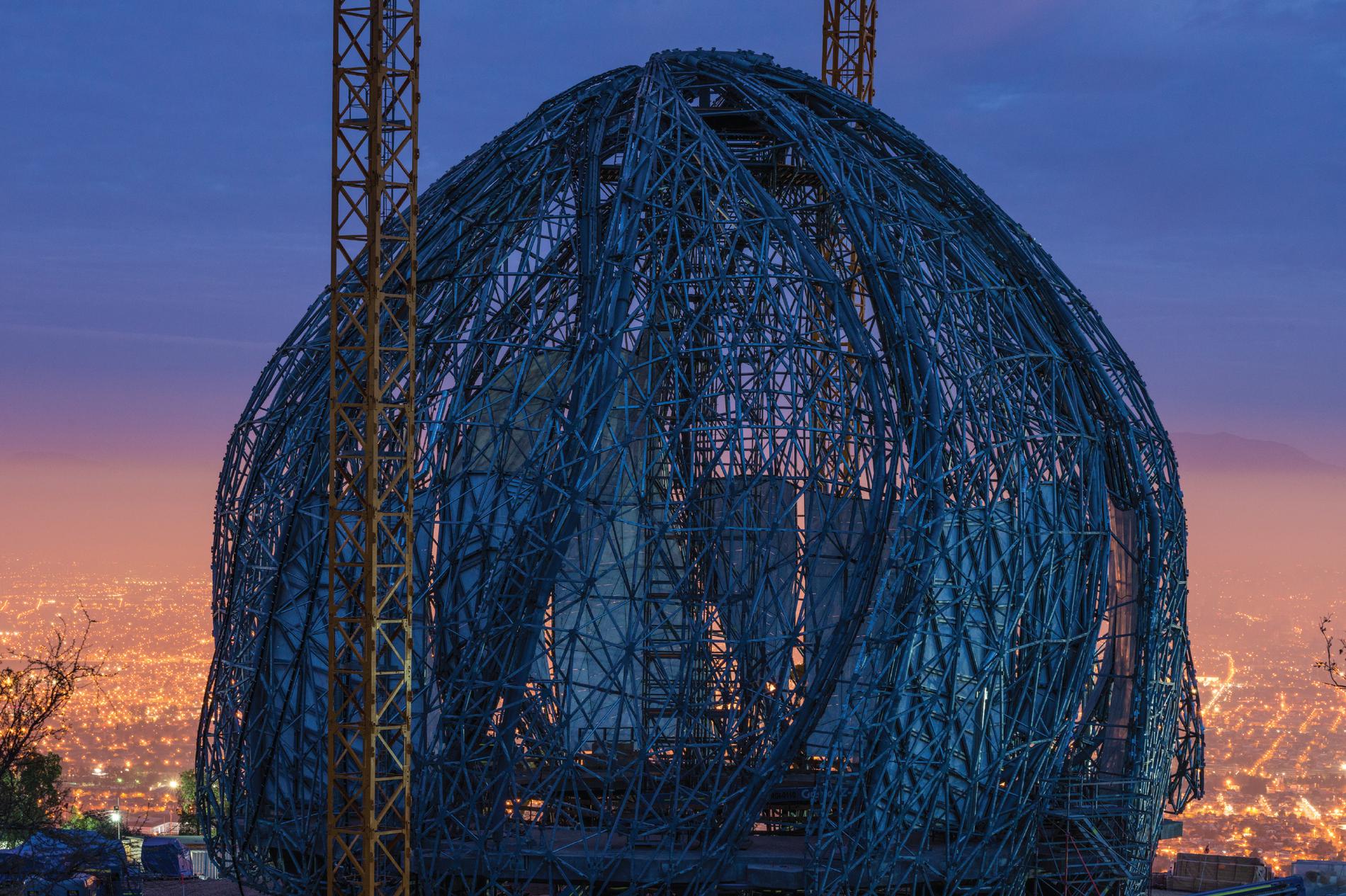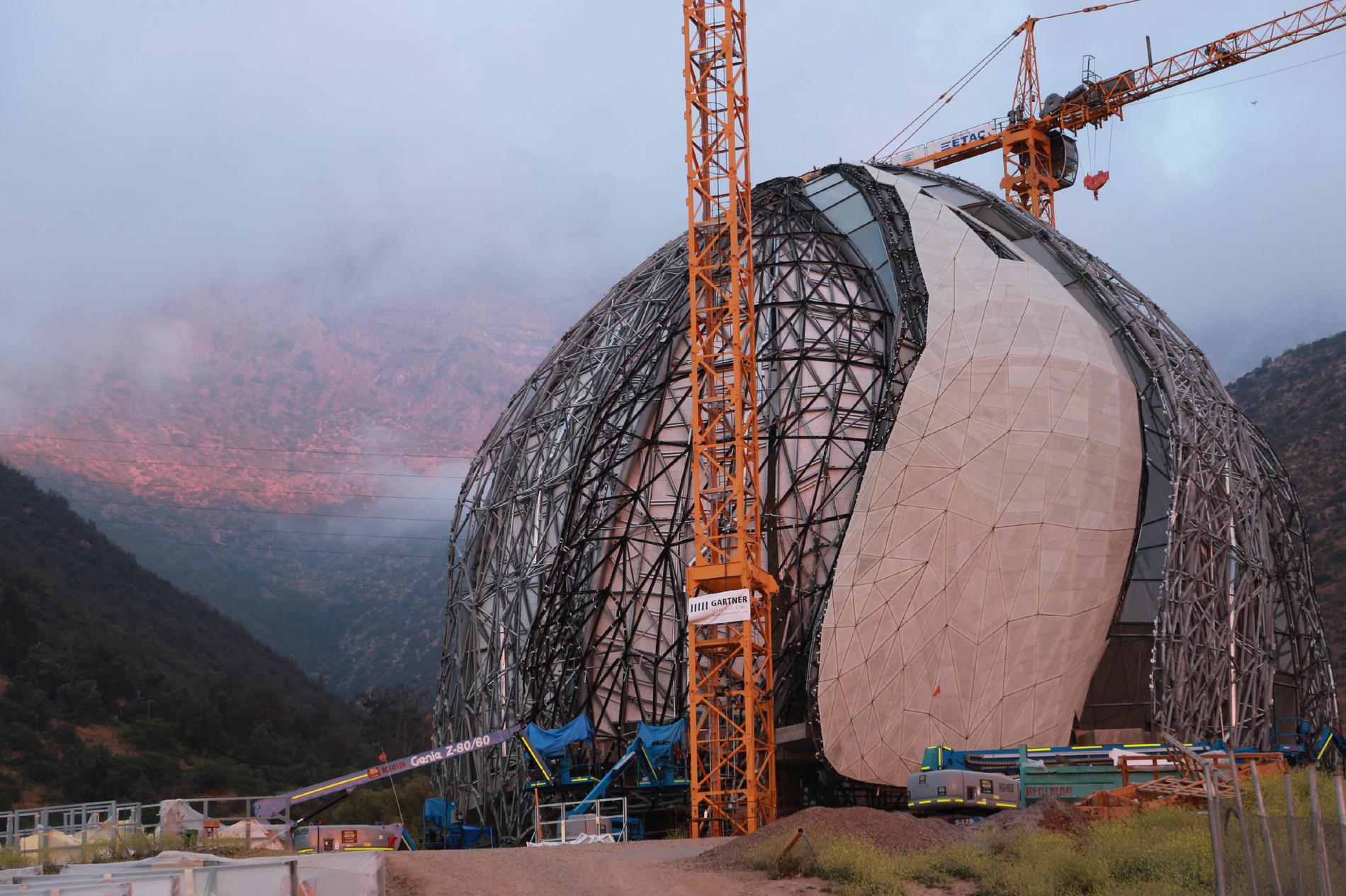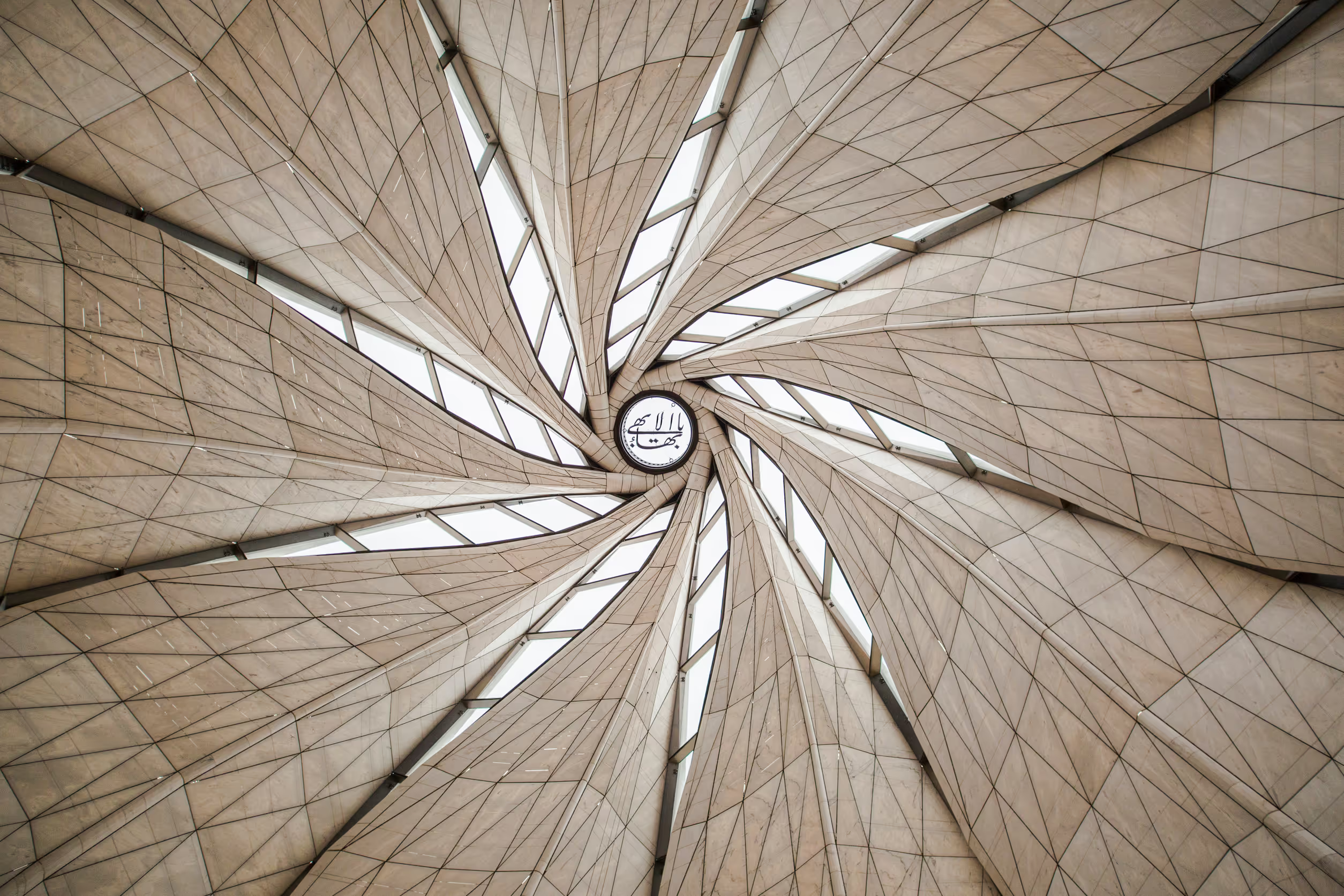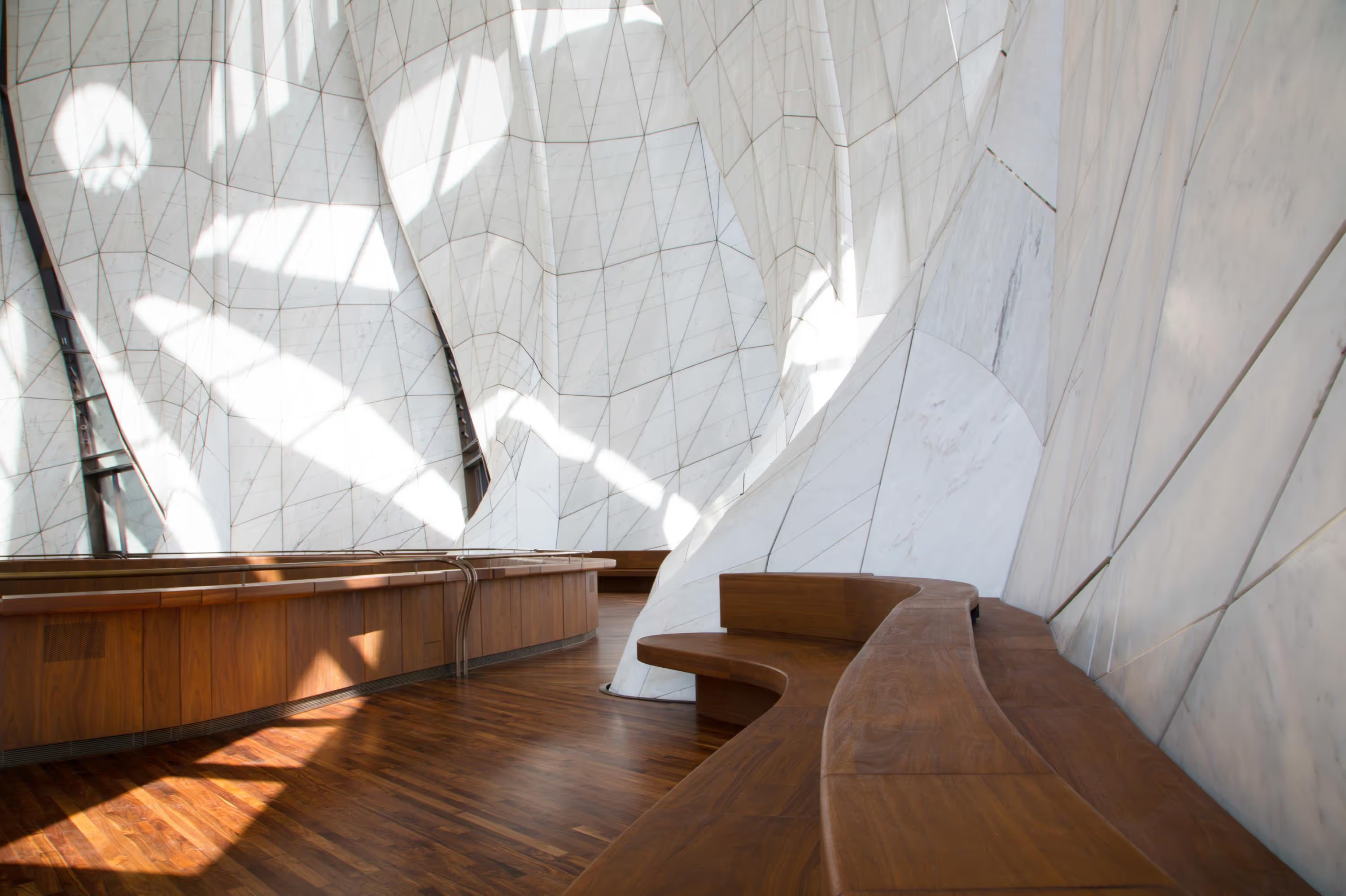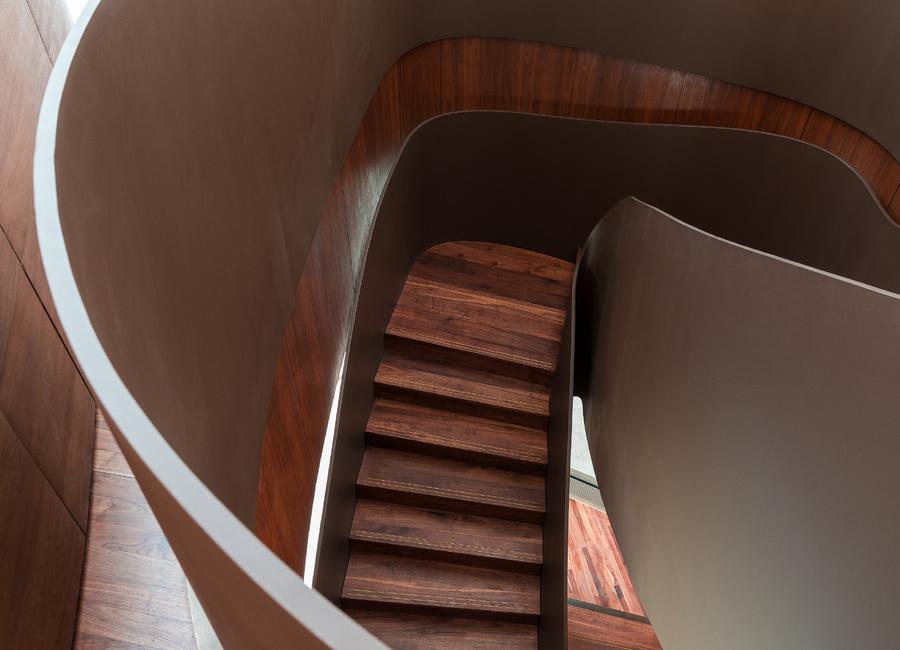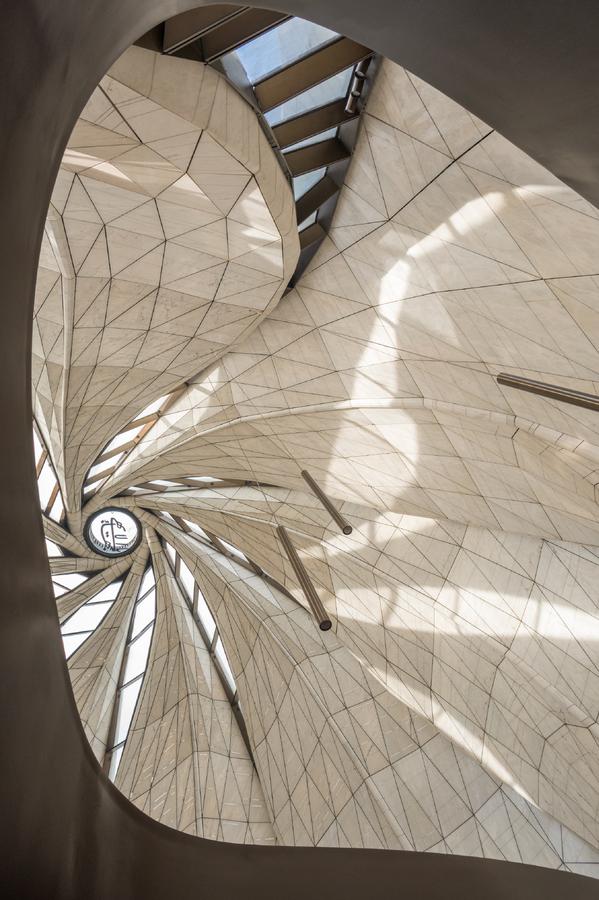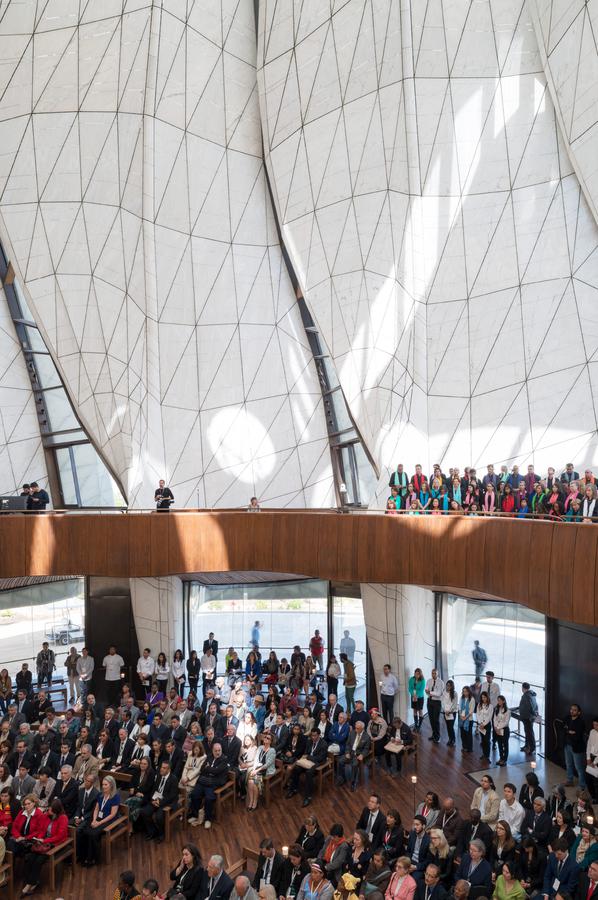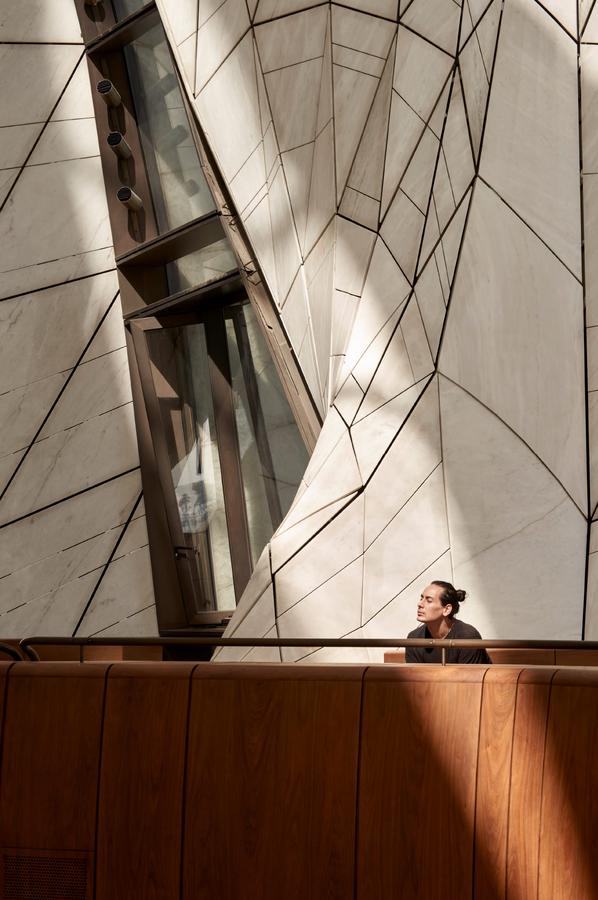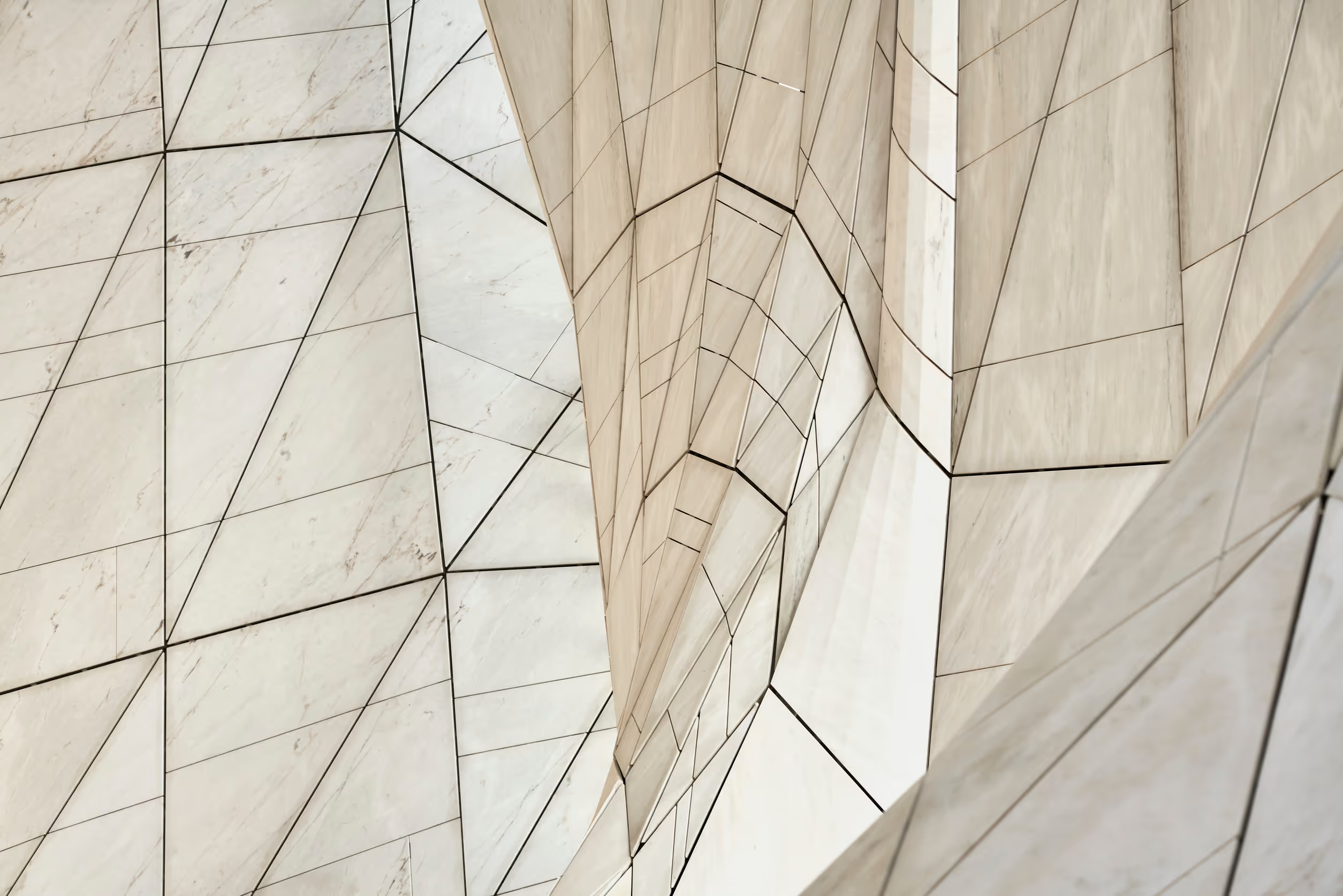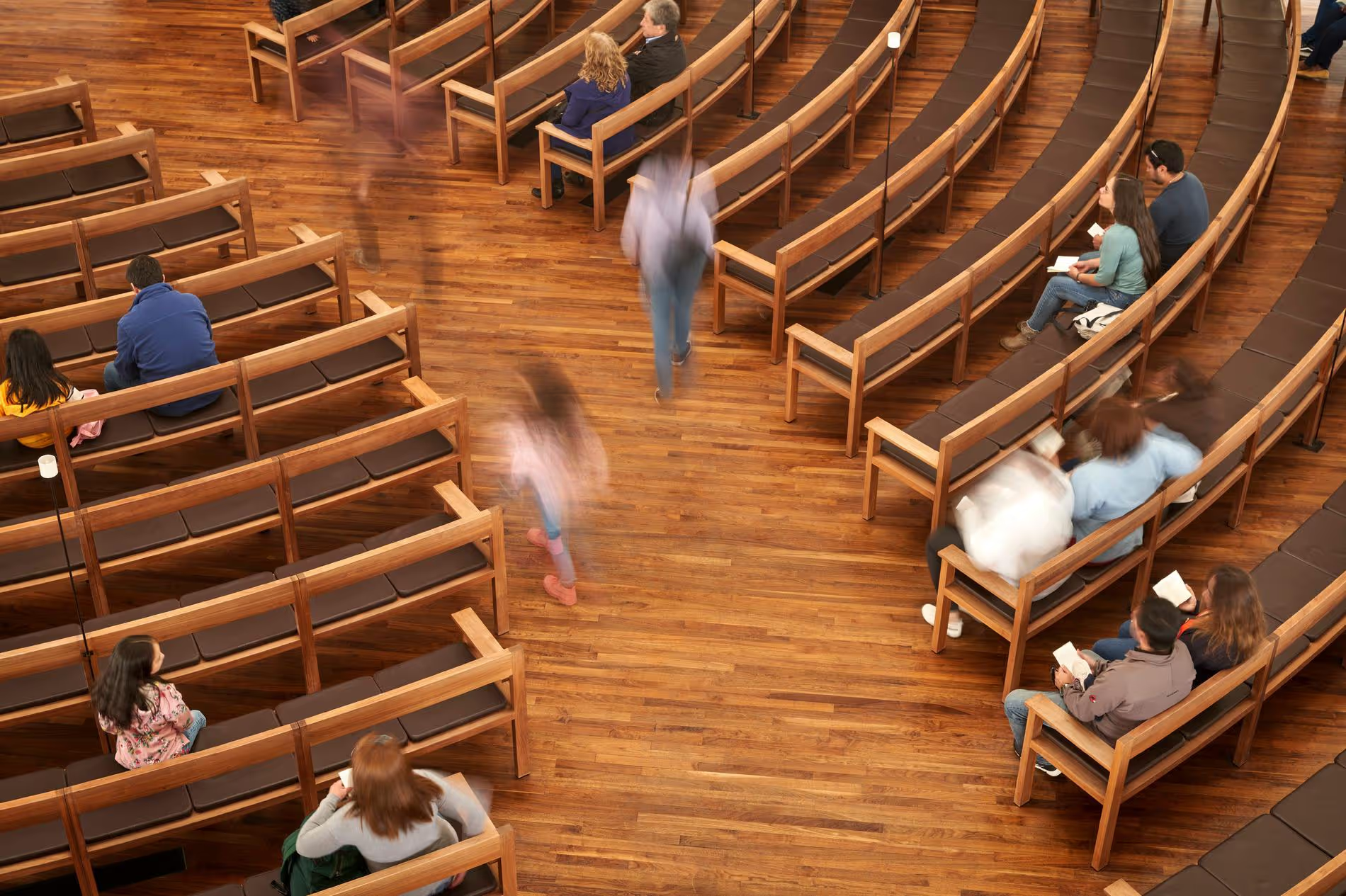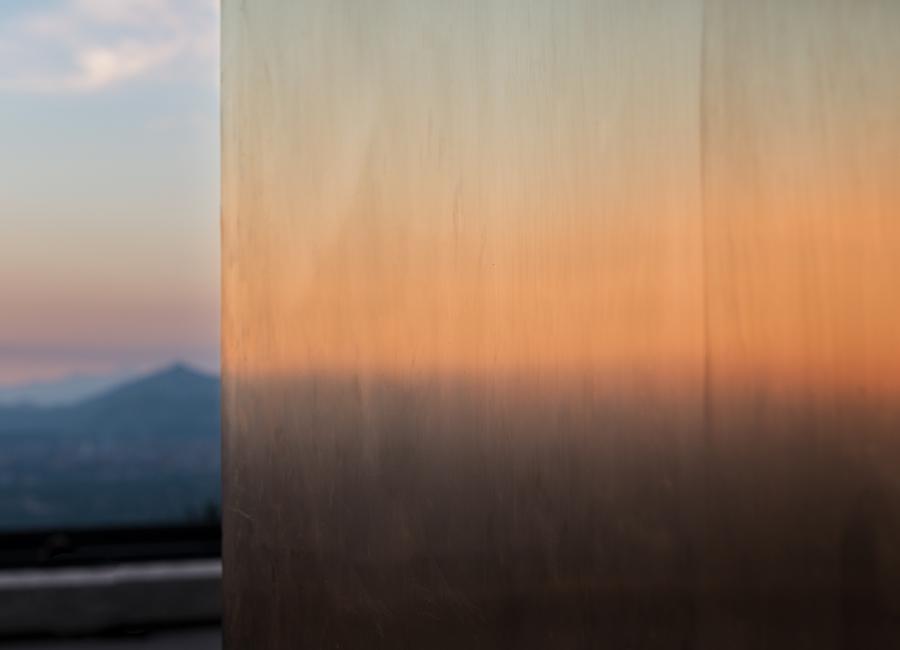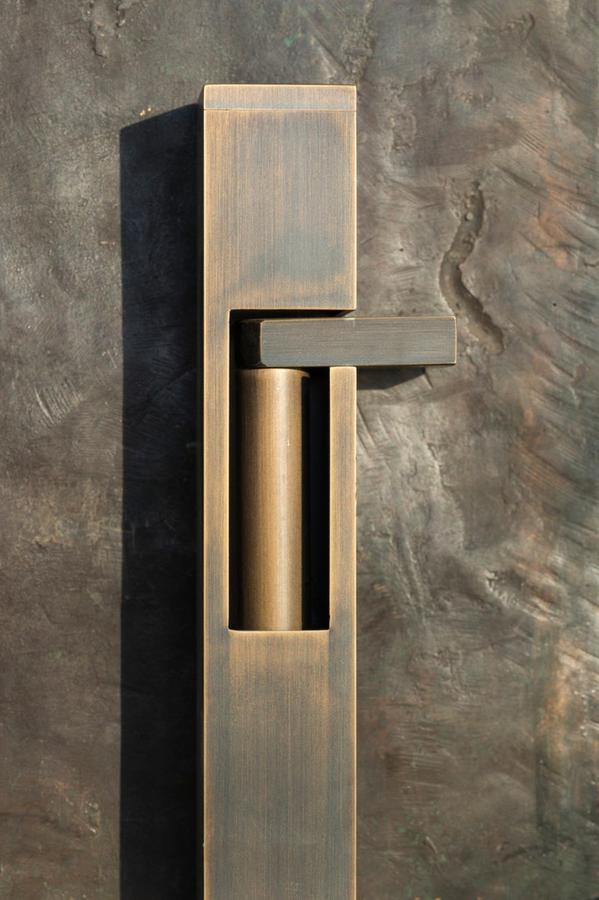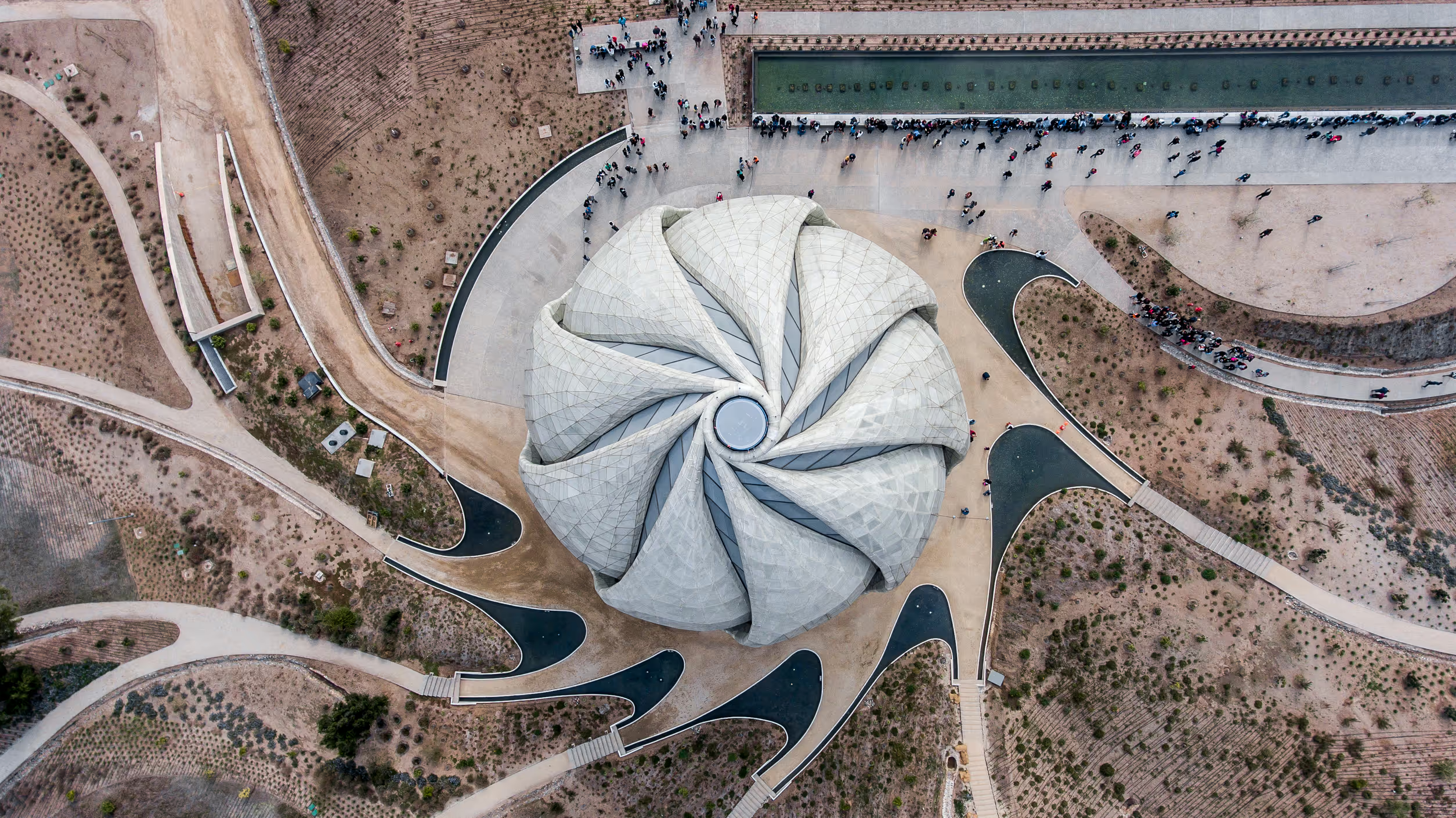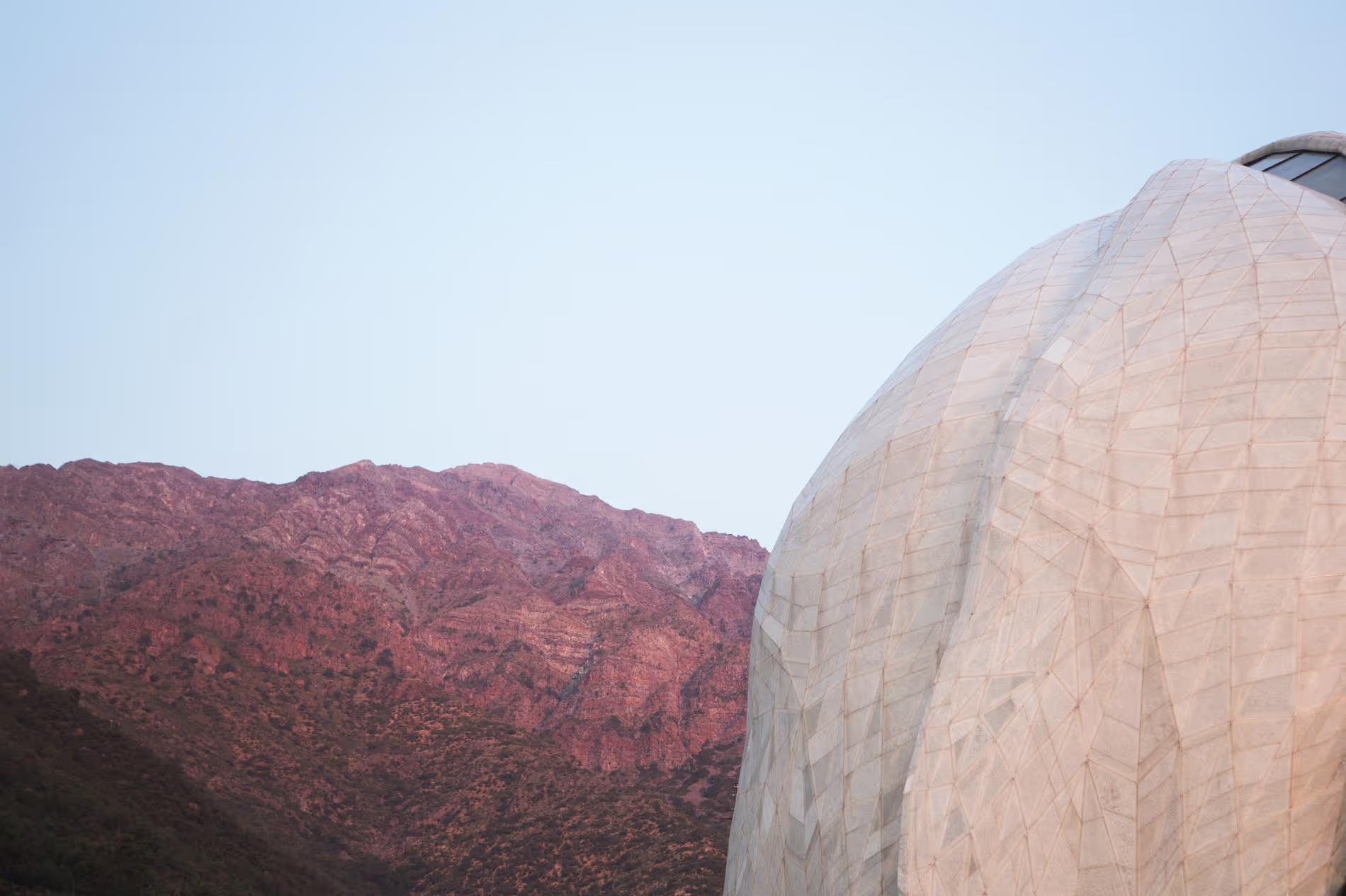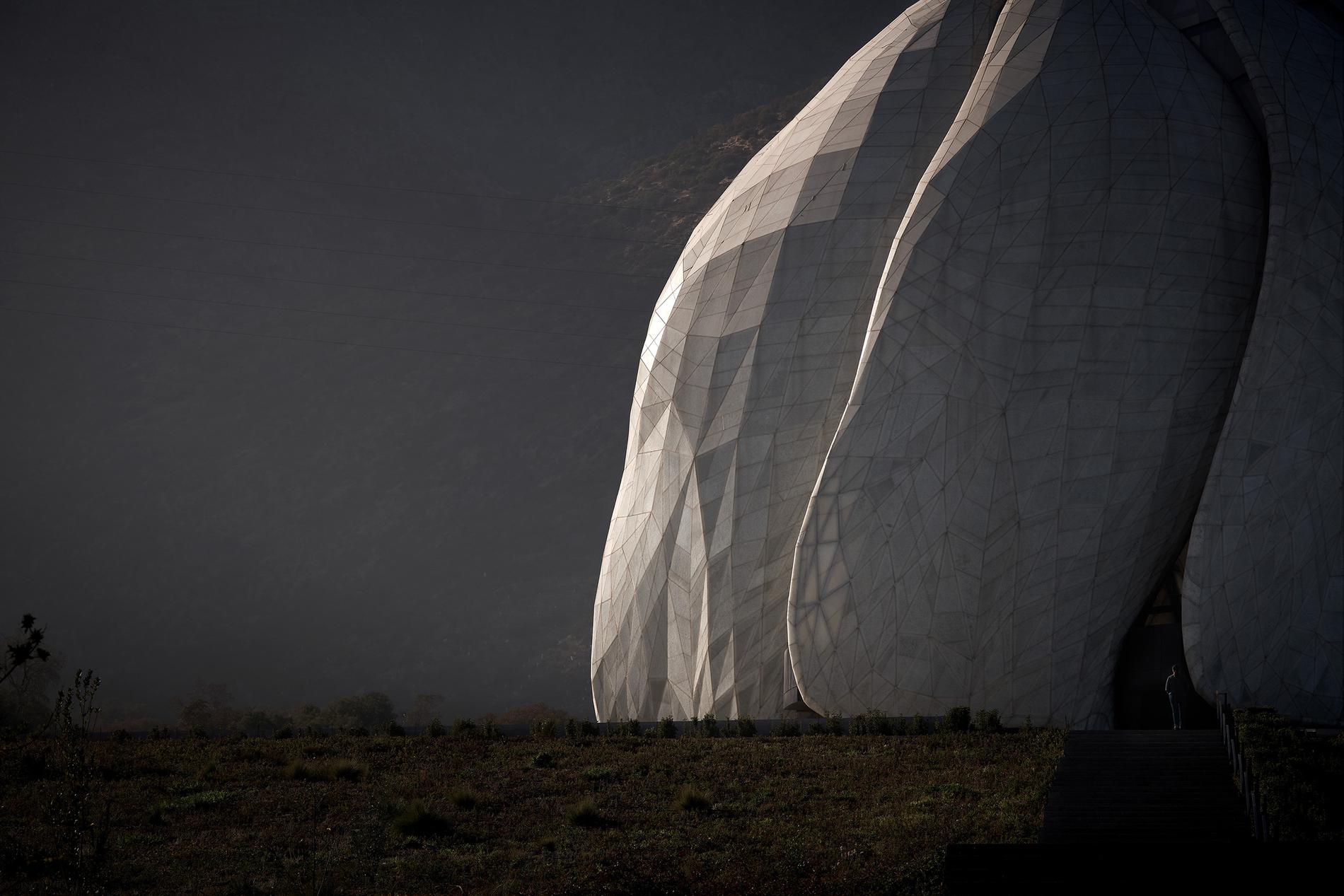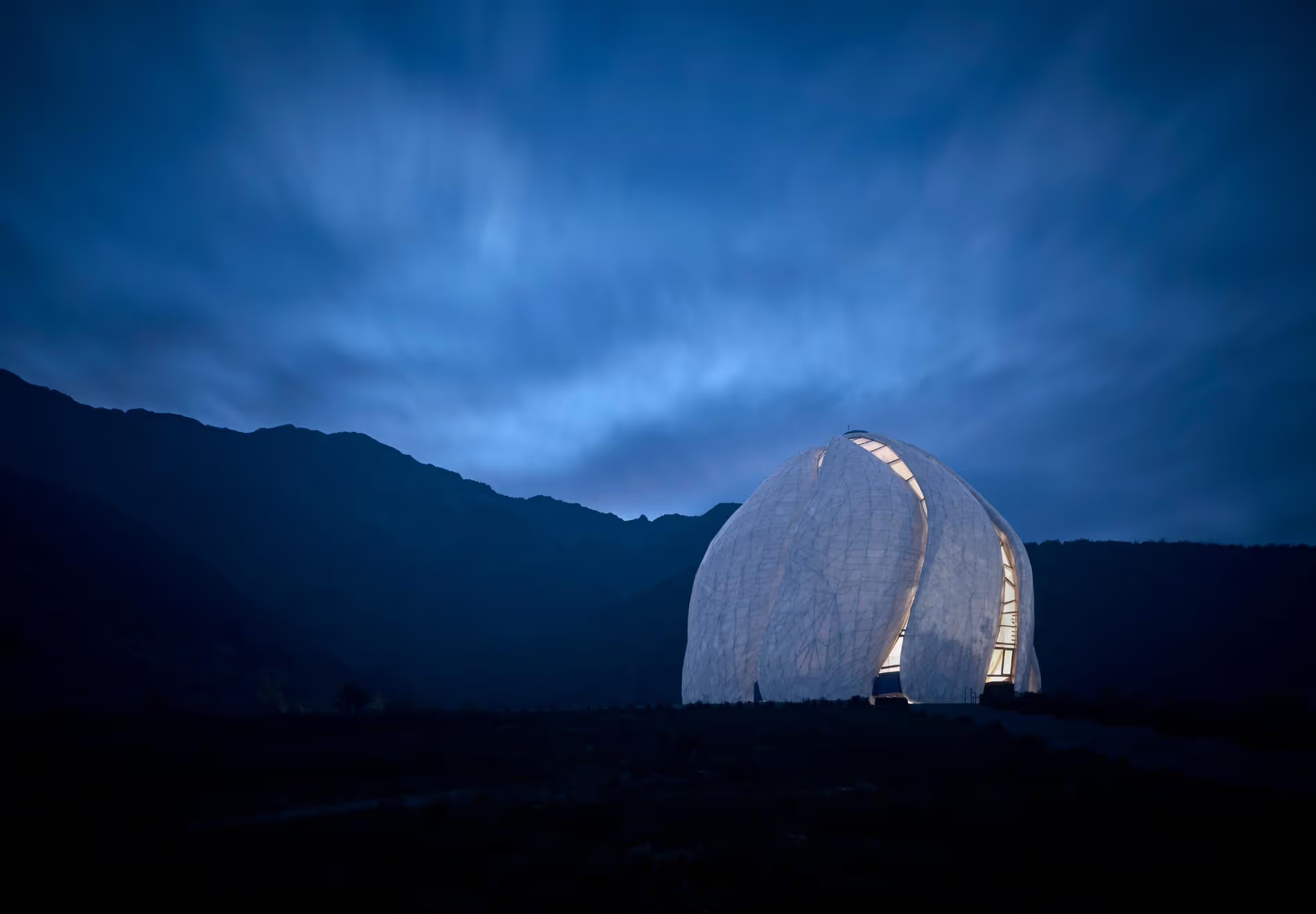The Bahá’í Temple of South America uses light for its spiritual and design inspiration. Set within the foothills of the Andes bordering the metropolis of Santiago, Chile, it represents the last of eight continental Temples commissioned by the Bahá’í Community. Its nine monumental glass veils frame an open and accessible worship space where up to 600 visitors can be accommodated. Looking up to the central oculus at the apex of the dome, visitors will experience a mesmerizing transfer of light from the exterior of cast glass to an interior of translucent Portuguese marble. At sunset, the light captured within the dome shifts from white to silver to ochre and purple.
Expressing a faith of inclusion, the Temple is more than just a story of complex design, innovation, sustainability, and construction; it is the embodiment of a community’s aspirations. Since the opening in October of 2016, the Temple has become a major attractor in South America, welcoming up to 36,000 visitors each weekend.
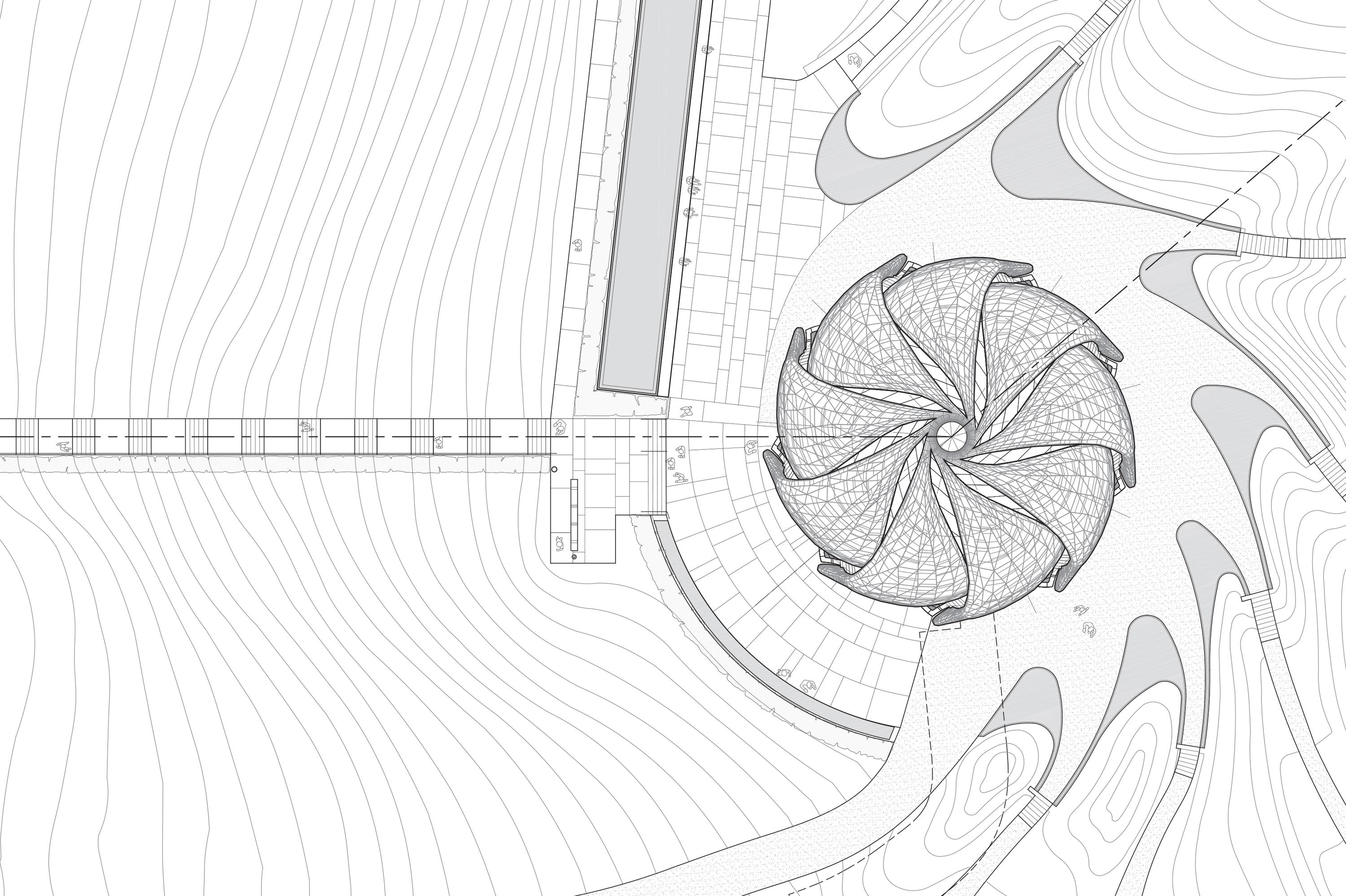
Members
2021 – American Institute of Architects, International Region Design Awards, Honour Award for International Architecture
2020 – Royal Architectural Institute of Canada, Governor General's Medal in Architecture
2019 – Royal Architectural Institute of Canada, International Prize
2018 – Ontario Association of Architects, Design Excellence Award
2017 – Royal Architectural Institute of Canada, Innovation in Architecture Award
2017 – American Institute of Architects, Innovation Award

